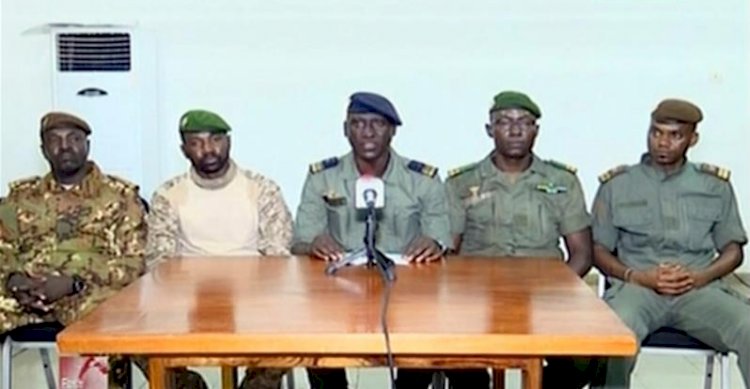Mali Soldiers Promise Elections After Coup D'Etat

Soldiers who overthrew Mali's president in a coup d'etat that drew international condemnation pledged on Wednesday to restore stability and oversee a transition to elections within a "reasonable" period. The President
Ibrahim Boubacar Keita resigned and dissolved parliament late on Tuesday, hours after the coup leaders detained him at gunpoint, plunging a country already facing an armed movement against it as well as
mass protests deeper into crisis. Colonel Major Ismael Wague a spokesman for the coup makers calling themselves the National Committee for the Salvation of the People said they acted to prevent Mali from falling
further into chaos. "The social and political tension has undermined the proper functioning of the country for quite a while," said Wague. "Mali descends into chaos day by day [with] anarchy and insecurity because of the
fault of the people in charge of its destiny. Real democracy doesn't go with complacency, nor weakness of the state authority, which must guarantee freedom and security of the people." The takeover was quickly
condemned by Mali's regional and international partners, who fear Keita's fall could further destabilise the former French colony and West Africa's entire Sahel region. Flanked by soldiers, Wague invited Mali's civil
society and political movements to join them to create conditions for a political transition. "We are not keen on power, but we are keen on the stability of the country, which will allow us to organise general elections to allow Mali to equip itself with strong institutions within the reasonable time limit."
Looting
Late on Tuesday, anti-government protesters had poured into a central square in Bamako to cheer on the coup makers as they drove through in military vehicles. The capital was far quieter on Wednesday, with few civilians on the streets and most shops closed after
overnight looting. Videos circulating on social media showed people running through luxury compounds in the city, including properties identified as belonging to Justice Minister Kassoum Tapo and Keita's son, Karim.
The coup was condemned by Mali's regional and international partners, who fear Keita's fall could further destabilise the country and West Africa's entire Sahel region. Landlocked Mali has struggled to regain stability
since the Tuareg uprising in 2012, which was hijacked by fighters linked to al Qaeda, and a subsequent coup that plunged the country into chaos. Keita, 75, came to power in 2013 following the Bamako coup d'etat, promising to bring peace and stability and to fight
corruption. He won reelection for a second five year term in 2018. On Wednesday, European Union Industry Commissioner Thierry Breton said the bloc would insist on new elections in Mali within a reasonable timeframe, while China said it opposed regime change by force.
West Africa's 15 nation regional bloc, the Economic Community of West African States, on Tuesday suspended Mali from its institutions and closed its member states' borders with Mali. Having previously warned it would no longer tolerate military takeovers in
the region, the bloc plans to send a high level delegation to Mali to ensure a return to constitutional democracy. The UN Security Council will be briefed on Mali behind closed doors on Wednesday at the request of France and Niger, diplomats said. UN Secretary General Antonio Guterres on Tuesday called for the immediate release of Keita and other detainees.

